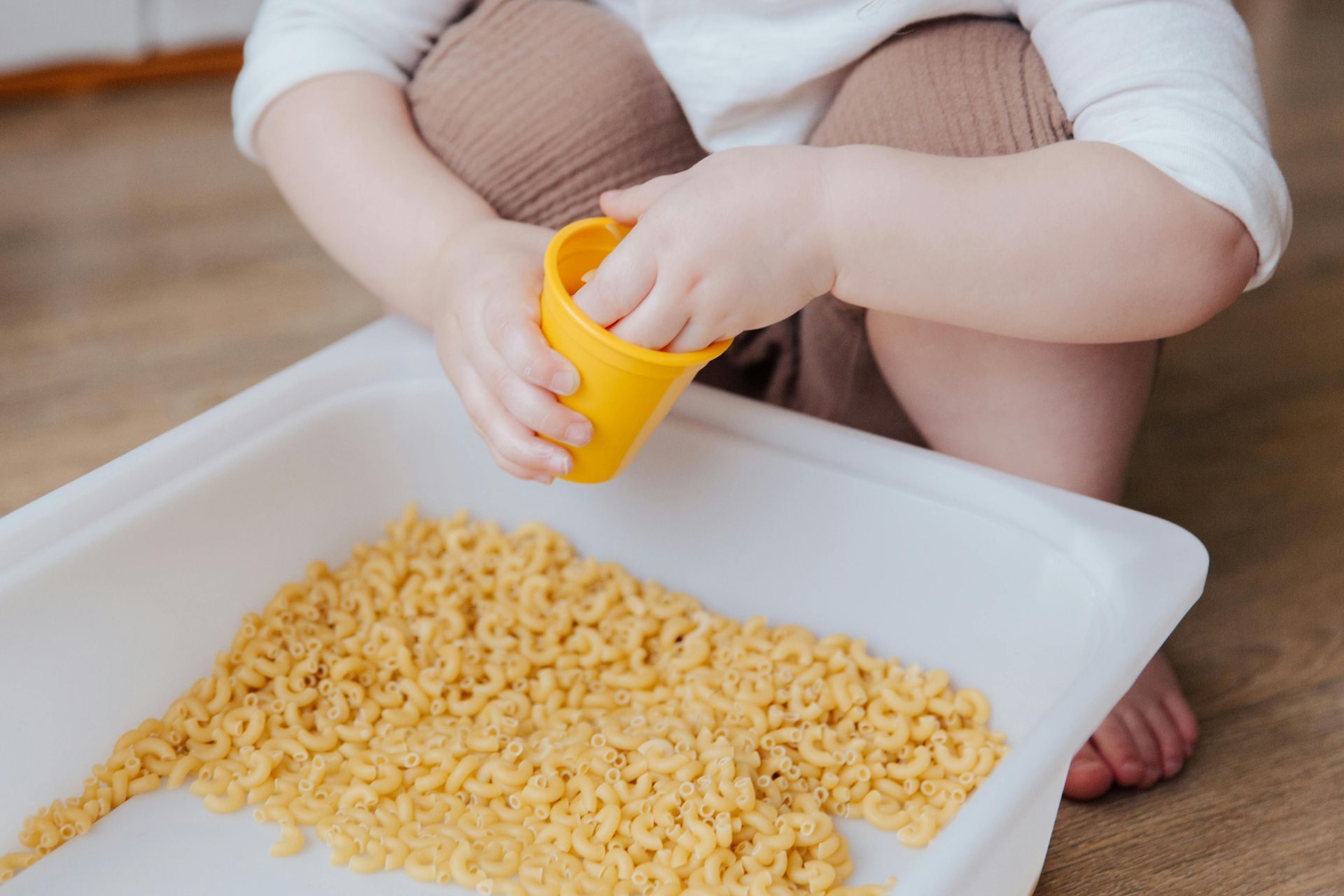Let's Talk Tummies
How Your Kiddo's Belly Affects Their Chow Time
Hey there, parents! Feeding your little ones is like trying to solve a puzzle sometimes, right? Well, one big piece of that puzzle is their gastrointestinal (GI) system. Yep, that's the fancy term for their tummy and all the plumbing inside it. And let me tell you, it's a big deal when it comes to what and how they eat.
So, let's dive in and chat about how your kiddo's GI system can throw a curveball or two into mealtime and what we can do about it.
First off, what's the deal with the GI system? Picture this: it's like a factory in their belly, working hard to break down food into all the good stuff their bodies need to grow and play. But sometimes, things don't run as smoothly as we'd like, and that can affect how they munch down.
Let's dive deeper into each of these areas to better understand how they can impact your child's feeding experience:
1. Sensory Shenanigans and Struggles: Have you ever noticed your child scrunching up their nose or pushing away certain foods? It might not just be about taste preferences; it could be sensory-related. For some kids, certain textures or flavors can feel overwhelming or unpleasant in their mouths. Imagine trying to eat something that feels slimy or gritty when you were expecting smoothness - not a pleasant experience, right? These sensory processing issues can make mealtime a real challenge for both you and your child. Textures, smells, even the way food looks can all be major players in their eating game.
2. Reflux Ruckus: Picture this: you sit down to enjoy a delicious meal, but instead of feeling satisfied afterward, you're left with a burning sensation in your chest and throat. That's what kids with gastroesophageal reflux (GERD) might experience after eating. The stomach acid that's supposed to stay put can sneak its way back up into the esophagus, causing discomfort or even pain. No wonder they might start associating eating with discomfort and shy away from food altogether. It's like trying to enjoy a meal while walking on hot coals - not exactly appetizing!
3. Allergy Alerts: Food allergies or intolerances can turn mealtime into a minefield for both you and your child. Imagine every bite of food being a potential trigger for a reaction - it's enough to make anyone nervous. These allergic reactions can range from mild discomfort, like tummy aches or bloating, to more severe symptoms like hives, difficulty breathing, or even anaphylaxis. So, it's no wonder your child might become a master at dodging certain foods like a ninja, trying to avoid those pesky allergens at all costs.
4. Potty Problems: Constipation or diarrhea - they're the unwelcome guests that can crash your child's mealtime party. Imagine trying to enjoy your favorite meal while feeling bloated, uncomfortable, or rushing to the bathroom every few minutes. It's enough to ruin anyone's appetite! These GI issues can throw a major wrench into your child's eating routine, making them hesitant to eat or causing them to associate food with discomfort. It's like trying to enjoy a picnic while battling a sudden thunderstorm - not exactly ideal!
So, what's a parent to do? Here are some tips to help you navigate the twists and turns of your kiddo's GI system:
1. Team Up with Your Pediatrician: If you're seeing consistent issues, it's time to call in the pros. Your pediatrician or a specialist can help you figure out what's going on and how to tackle it.
2. Mix it Up: Offer a variety of foods and flavors, but don't stress if your kiddo isn't into every single thing you put on their plate. It's all about exploring and finding what works for them.
3. Keep it Cool: Mealtime should be a chill zone, not a battleground. Create a relaxed atmosphere with no pressure, so your kiddo feels comfortable trying new things at their own pace.
4. Get Creative: If sensory stuff is throwing a wrench in your meal plans, get crafty! Try different textures or ways of presenting food to see what clicks with your kiddo.
5. Stay Hydrated and Regular: Keep an eye on their fluids and bathroom habits. Staying hydrated and having regular potty breaks can help keep their GI system in check.
6. Don't Go it Alone: If things are still bumpy, don't hesitate to reach out for help. There are specialists out there who work wonders with kids and their eating habits.
In a nutshell, understanding how your kiddo's GI system affects their feeding habits is key to smoother meal times and happier bellies. With a little patience, creativity, and support, you can help your child navigate any bumps in the road and set them up for a lifetime of healthy eating habits. So, let's raise a toast (or a spoonful of pureed peas) to happy tummies and full hearts!












